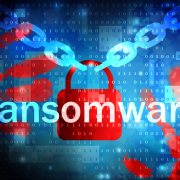XSolutions’ LinkedIn Post Roundup: Feb 15, 2021
Here are a select few of this week’s LinkedIn posts by XSolutions:
40% Of Consumers Were Scammed By Phone In 2020 (2/15/2021)
Help Net Security reports a remarkable increase in phone scams while the pandemic raged in 2020.
During 2020, the average loss per tricked consumer was $182.00, with 7% admitting to losing $500 or more.
A common tactic for scammers is to spoof a telephone number of a legitimate, well-known company.
Folks, don’t fall for these schemes. Microsoft, Apple, Google, Fed-Ex, etc., will not call you about software issues, malware, or any other “problem.”
Please, DO NOT give any information to anyone calling you. Always hang up and call the company directly using a verified telephone number and inquire if there is any problem with your account.
Be safe.
SIM Card Hacking – A Growing Problem (2/12/2021)
SIM cards are small cards with a chip. They are removable and can be used in other mobile phones. It must be in place for the phone to access the local mobile network.
SIM Card Hacking is when a crook contacts your phone provider, convinces them that he is you, and requests a replacement SIM Card. Once the hacker gets the new card, the old one in your phone is deactivated. The hacker now has full control of your mobile phone and anything it contains, like mobile banking info, contacts, documents, etc.
This low-tech hack is widespread and effective because it does not depend on getting through sophisticated digital security systems. A good social engineer can gather readily-available info on the internet for any target, and with this information, convince mobile carriers that they are you.
One way to protect yourself is to set up a SIM Card lock. You’ll need to look up how to do it on your particular phone, but essentially, you set up a pin for your SIM Card. If you enter the SIM pin incorrectly 3 times, your SIM Card will be locked. To unlock your SIM, you’ll need a Pin Unlock Key (PUK).
Before locking your SIM Card, make sure you do the necessary research first.
Do You Know The Signs Of A Pending Ransomware Attack? (2/11/2021)
SOS Daily News put out an excellent article on this. All should take note:
* Multiple login attempts, especially on admin accounts
* Brute Force attacks
* A spike in file copying
* A sudden increase in phishing emails
* The disabling of security software
* Redirects to unintended websites
Many times, criminals will penetrate a network, undetected, and silently steal data while “mapping out” the organization. When done, they’ll drop ransomware on the network to extort money while simultaneously selling the stolen data on the dark web – all to increase profit-per-victim.
Without IT departments or outside IT support, companies will have no way to monitor their networks for bad behavior and risk falling victim to breaches and attacks, including ransomware.
It is crucial that EVERY business, large or small, up their cybersecurity game. The bad guys are continually probing networks, and once a weakness is found, they’ll quickly exploit it.
If you notice any of the above behaviors, act immediately.
Don’t Think Hacking Is Serious? Then Read This (2/10/2021)
Officials from Pinellas County, Florida, disclosed that a hacker gained access to the City of Oldsmar’s water treatment system and remotely increased the amount of sodium hydroxide in the water supply.
Luckily, the system change was quickly discovered and reversed by an operator, saving countless lives.
Folks, cybercrime is serious business. In this incident, lives, not just data could have been lost.
Governments and businesses have to increase their cybersecurity posture. Intrusion detection MUST become part of your security plan.
The Link Between Social Media And Cybercrime (2/9/2021)
Cyware recently cited research showing that most information shared on social media and deemed harmless by users can be used against you by hackers.
It allows criminals to construct a psychological profile of you using pictures of your whereabouts, the tagging of friends and family, comments on trips, etc.
* Be careful of the information you share. You may think it is private, but hackers look upon social media accounts as a treasure trove of information.
* Be mindful of who you tag in posts. Tagging endangers not only your security but the security of the people you’ve tagged.
* Lockdown all social media accounts with Multifactor authentication.
* Regularly review privacy settings as Social media companies change them often.
* Planning a trip? NEVER post about it on social media. This is an open invitation to robbery and fraud.
* Be skeptical when conversing with someone you don’t know on social media. People do misrepresent themselves on the internet. This is where digital security DEMANDS physical security. Don’t put yourself in physical danger – EVER!
Social media, if done right, can be a rewarding experience. But, you must be careful and be on your guard at all times.
XSolutions is an Elite Partner of Datto, the world leader in Hybrid-Cloud Business Continuity solutions. We provide Disaster Recovery as a Service (DRaaS), Backup as a Service (BaaS), Cloud Data Protection (CDP), and Managed I.T. Services (MSP). Call (845) 362-9675 for a free consultation. Backup & Disaster Recovery| Cloud Data Protection |Managed I.T. Services











